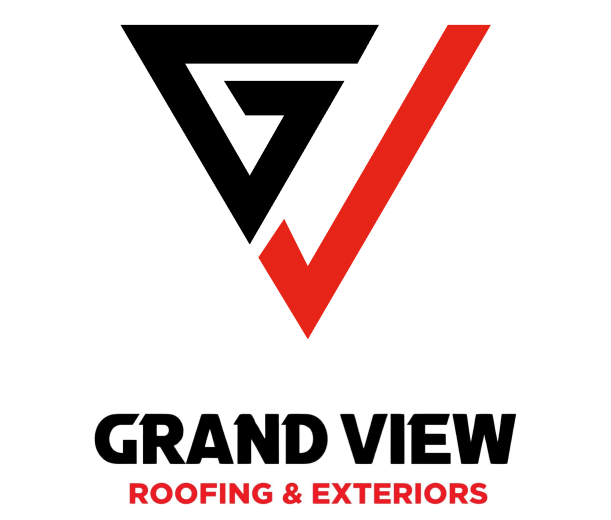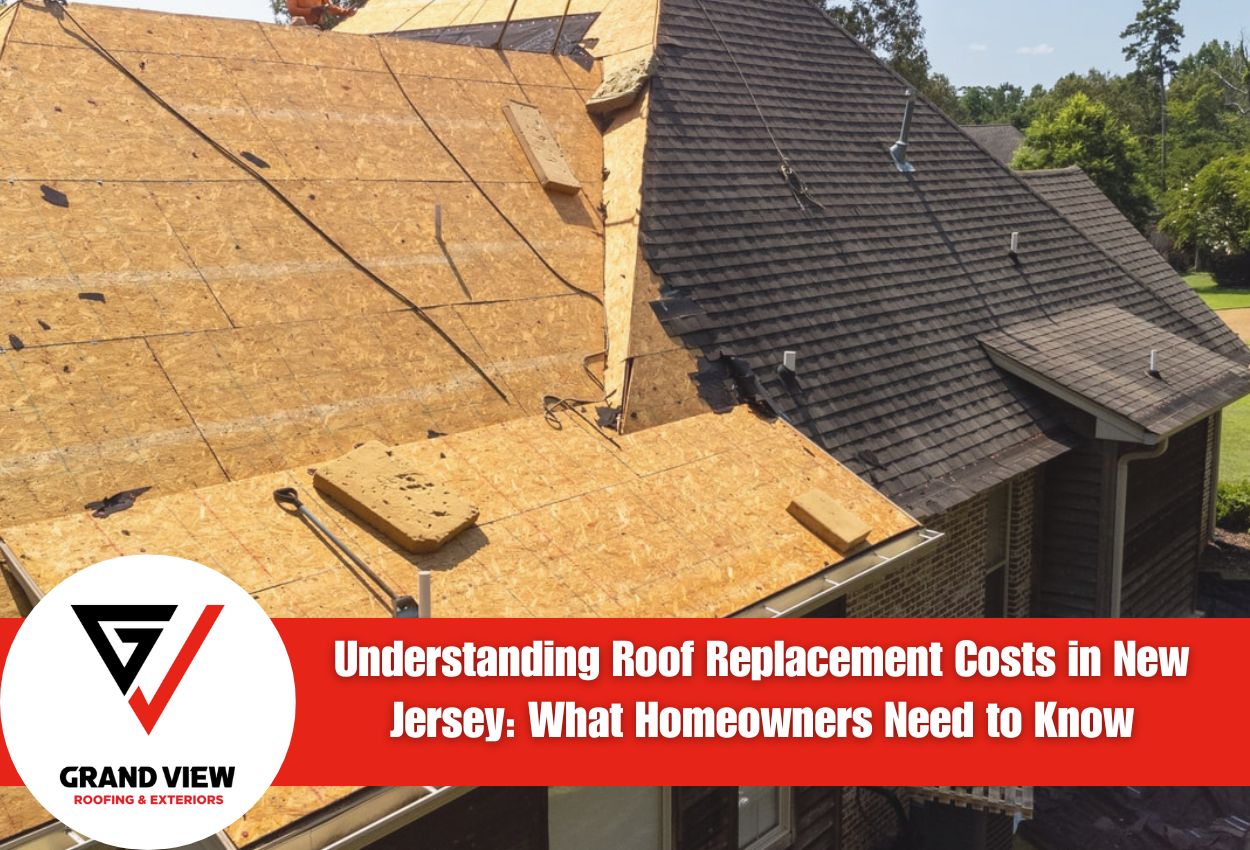A roof replacement is a major investment for any New Jersey homeowner. Several factors influence overall project expenses throughout the Garden State. Your location plays a substantial role, as coastal areas have different material requirements compared to inland regions. Local building codes, permit requirements, and regional labor costs also contribute to the total investment needed for roof replacement projects. The state’s diverse weather patterns, from coastal storms to harsh winters, also directly impact the cost of this essential project.
The roof replacement process involves multiple components beyond basic materials and installation. Homeowners must account for the disposal of existing roofing materials, potential structural repairs, and specialized equipment required for safe installation. Weather conditions throughout New Jersey can affect the roof installation timeline, potentially impacting labor costs and project scheduling.
Market conditions significantly influence roofing contractor estimates across different counties. Urban areas typically experience higher labor costs, while rural regions may face material transportation expenses. Understanding these variables helps homeowners develop realistic budgets and make the best decisions about their roof replacement project. Proper planning ensures projects proceed smoothly while maximizing long-term value and protection for residential properties.
Key Factors That Impact Your Roof Replacement Investment
Multiple variables determine the scope and complexity of roof replacement projects across New Jersey. Home size serves as the primary factor affecting material quantities, with larger structures requiring proportionally more residential roofing materials and extended labor hours. Roof complexity significantly influences the roof replacement process, as multi-level designs, steep pitches, and intricate angles need specialized installation techniques and additional safety measures.
Architectural features create substantial variations in roofing contractor estimates. Dormers, skylights, chimneys, and ventilation systems require precise flashing work and custom fitting during roof replacement projects. These elements extend the roof installation timeline while increasing material waste and labor requirements. Experienced craftsmanship is non-negotiable for complex rooflines with multiple valleys, ridges, and intersections to ensure proper water drainage and weatherproofing.
New Jersey’s regional considerations add another layer of complexity to roof replacement costs. Local building codes vary between municipalities, with coastal areas generally enforcing stricter wind resistance requirements than inland regions. Permit requirements differ across counties, affecting project scheduling and administrative expenses. Seasonal weather patterns influence material availability and contractor scheduling, particularly during peak work periods following major storms.
Local market conditions fluctuate based on regional demand, material transportation costs, and contractor availability. Dense suburban areas typically experience higher labor rates, while rural locations may face material delivery challenges that impact overall project expenses and timeline considerations.
Residential Roofing Materials and Their Estimated Costs
Material choice affects the final roof replacement cost for New Jersey homeowners. Asphalt shingles remain the most popular residential roofing material due to their affordable cost and decent performance. 3-Tab shingles represent the entry-level option, while architectural shingles offer enhanced durability and aesthetic appeal at moderate price increases. Premium designer shingles provide maximum curb appeal and extended warranties, but require larger upfront investments.
Metal roofs are popular among homeowners seeking long-term value despite higher initial expenses. Standing seam systems offer superior longevity and weather resistance, often lasting twice as long as traditional asphalt shingle replacement options. Steel and aluminum panels have different characteristics and prices, with copper representing the premium metal roof category.
Alternative materials like slate, tile, and cedar shakes cater to specific architectural styles and performance requirements. These specialty options typically extend the roof installation timeline due to specialized techniques and material handling requirements. Each material comes with different levels of warranty coverage that directly correlate with quality and manufacturer backing.
Quality grades within each material type significantly impact both immediate investment and long-term maintenance expenses. Higher-grade products typically include enhanced warranties, better weather resistance, and improved manufacturing standards. Roofing contractor estimates reflect these quality differences, with premium materials commanding higher installation fees due to specialized handling requirements and extended labor commitments during the roof replacement process.
The Roof Replacement Process and Associated Expenses
Understanding the roof replacement process helps homeowners anticipate costs beyond basic material and labor expenses. The project begins with a comprehensive inspection and assessment, where contractors evaluate structural conditions, identify potential problems, and determine material requirements. This initial phase influences roofing contractor estimates by revealing hidden issues that affect project scope and complexity.
Material removal is a labor-intensive phase that generates disposal expenses often overlooked during budget planning. Old asphalt shingle replacement projects create substantial debris that must be disposed of through certified waste management facilities. Contractors must factor transportation costs, disposal fees, and potential hazardous material handling into their pricing structures. The deck inspection follows removal, sometimes revealing structural repairs that are needed before the installation of new residential roofing materials.
Weather protection measures during the roof installation add to the final expense that many homeowners fail to consider. Temporary tarping, scaffolding setup, and equipment rental ensure worker safety and property protection throughout the roof replacement process. These protective measures are even more important during extended projects or when unexpected weather delays occur.
Structural repairs discovered during the replacement significantly impact final project costs. Damaged decking, compromised rafters, or inadequate ventilation systems require immediate attention before the new material installation. Permit modifications, additional inspections, and specialized repair work extend both the timeline and increase expenses. Final cleanup, debris removal, and site restoration complete the process, and all add to the overall roof replacement cost in New Jersey.
Getting Accurate Roofing Contractor Estimates
Securing reliable roofing contractor estimates requires providing specific property information to potential contractors during the initial consultation process. Homeowners should prepare detailed documentation, including home square footage, existing material types, architectural features, and any known structural concerns. Previous inspection reports, insurance assessments, and maintenance records help contractors develop more accurate pricing for your roof replacement.
Questions to ask during estimate consultations include material grade specifications, warranty coverage details, and timeline expectations for your replacement project. Contractors should clearly explain their disposal procedures, permit handling responsibilities, and payment schedules throughout the roof installation timeline. Understanding subcontractor involvement, insurance coverage, and cleanup procedures prevents misunderstandings that could affect project outcomes and final expenses.
Receiving multiple estimates can reveal market variations while identifying potential issues with unusually low or high pricing proposals. Reputable contractors provide detailed breakdowns separating material costs, labor expenses, disposal fees, and permit requirements. These estimates allow homeowners to evaluate proposals based on specific components rather than total amounts alone.
Warning signs include contractors demanding large upfront payments, providing verbal estimates without written documentation, or pressuring immediate decisions without adequate consideration time. Quality professionals encourage homeowners to review multiple proposals, verify licenses, and understand warranty terms before committing to the project. Contractors who refuse to provide references or avoid discussing insurance coverage are typically higher-risk investments that could compromise project success and long-term satisfaction.
Asphalt Shingle Replacement Considerations and Timing
Asphalt shingle replacement dominates the residential roofing market due to its versatility and cost-effectiveness for New Jersey homeowners. Three grades offer varying performance levels and aesthetic options that directly impact roof replacement costs in New Jersey. As mentioned above, basic 3-tab shingles provide affordable weather protection with a uniform appearance, while architectural shingles deliver an enhanced dimensional style and improved durability ratings.
Premium designer shingles represent the highest quality tier, featuring advanced granule technology and extended warranty coverage that justifies their elevated investment levels. These high-grade residential roofing materials often include algae resistance treatments and impact ratings suitable for severe weather conditions common throughout the region. Color selections and texture variations allow homeowners to complement their architectural styles while maintaining practical performance requirements.
Seasonal timing significantly influences both roofing contractor estimates and project scheduling availability. Spring and early fall are generally optimal installation periods when weather conditions support efficient work completion and material performance. Summer heat can affect shingle handling and worker productivity, while winter installations face temperature restrictions that limit adhesive activation and sealing.
Storm seasons create scheduling challenges as contractors may prioritize emergency repairs over planned replacements. Planning asphalt shingle replacement projects during off-peak periods often results in better contractor availability, competitive pricing, and flexible scheduling options. The roof replacement process benefits from moderate temperatures and stable weather patterns that allow proper material acclimation and installation without weather-related delays or complications.
Maximizing Value and Making Smart Investments
Strategic planning transforms roof replacements into a valuable long-term investment rather than simply an unavoidable expense. Smart decision-making involves balancing immediate project needs against future benefits by evaluating material quality, energy efficiency improvements, and preventive measures that extend system lifespan. The roof replacement process presents opportunities to incorporate modern technologies and upgraded components that enhance overall property value while reducing ongoing maintenance requirements.
Energy-efficient residential roofing materials often justify higher upfront costs through reduced utility expenses and improved indoor comfort levels throughout seasonal temperature changes. Cool roofing technologies, enhanced insulation systems, and advanced ventilation components work together to optimize energy performance while providing superior weather protection. These upgrades typically qualify for utility rebates and tax incentives that offset the higher initial investment.
Budget planning strategies help homeowners manage expenses while ensuring quality workmanship and materials. Multiple financing options, including home improvement loans, contractor payment programs, and insurance settlements, provide flexibility for different financial situations. Roofing contractor estimates should include detailed payment schedules that align with project milestones rather than demanding excessive upfront payments that create unnecessary financial risk.
Preventive measures integrated during the roof installation maximize system performance and longevity. Upgraded flashing systems, improved gutters, and enhanced ventilation prevent common failure points that require expensive repairs. Quality installation practices combined with premium materials can lead to extend warranty coverage and reduced lifetime ownership costs through decreased maintenance requirements and improved weather resistance.
Expert Roof Replacement Services in New Jersey
Understanding the full scope and cost of replacing your roof in New Jersey can be daunting. At Grand View Roofing & Exteriors, we aim to make this process transparent and straightforward for you. Our team of experts is ready to guide you through every step, so you receive both top-quality materials and exceptional service based on your specific needs.
Whether you’re considering the popular asphalt shingle replacement or exploring other residential roofing materials, we offer comprehensive solutions that balance cost with long-term value. Don’t let the roof replacement process overwhelm you. Let us handle the details and help you make a smart investment in your home.
Ready to start your roof replacement project? Call us today at (856) 305-9883 to schedule a consultation and receive a detailed estimate. Trust Grand View Roofing & Exteriors to protect your home with professionalism and expertise.





 Call Us Today - (856) 305-9883
Call Us Today - (856) 305-9883 
